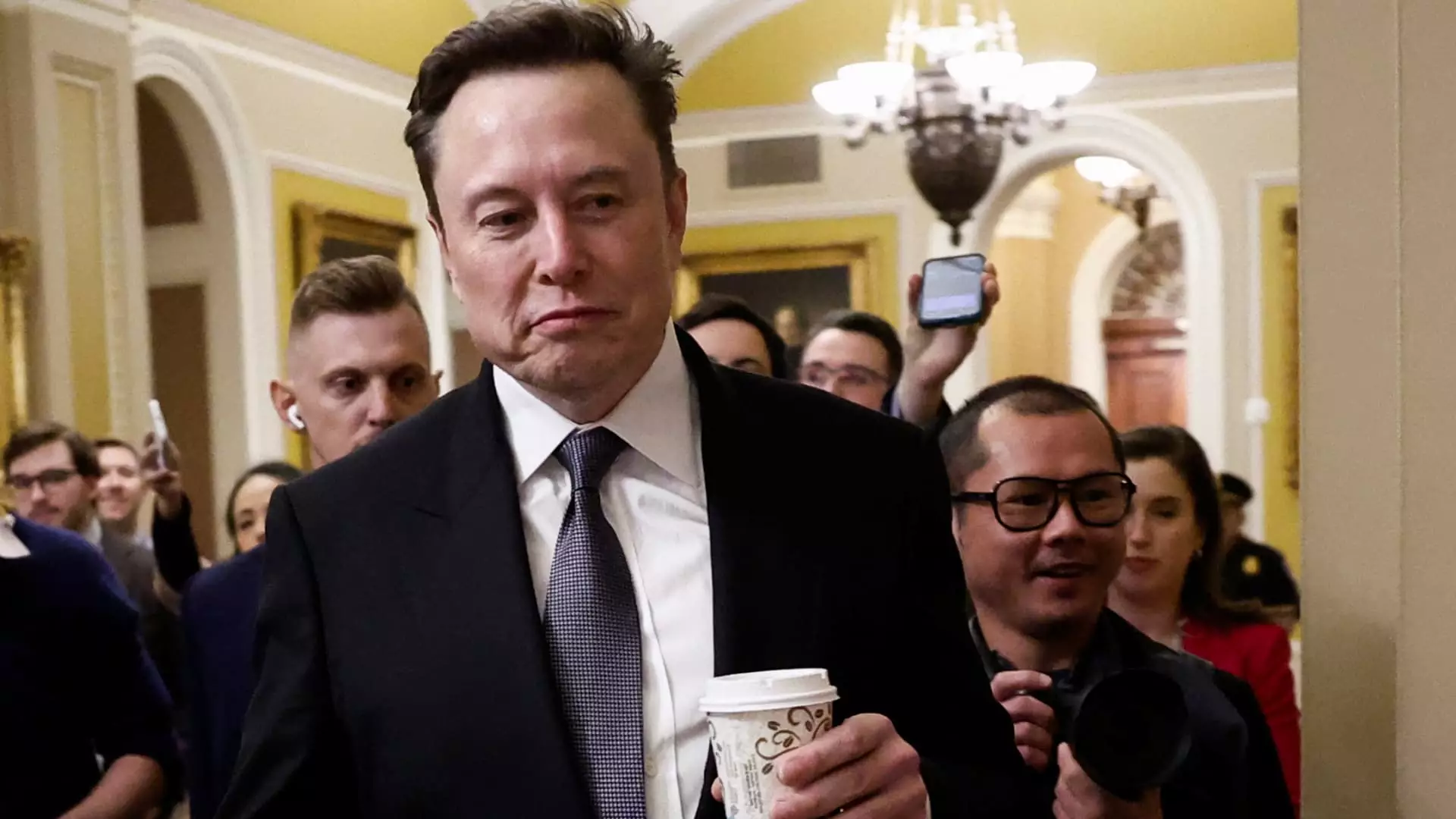In the realm of American politics, few individuals wield as much power and influence as Elon Musk, the CEO of Tesla and SpaceX. His ability to sway not only the business landscape but also legislative decisions highlights a troubling trend in which private interests appear to dictate government actions. Recent events surrounding a bipartisan funding bill intended to regulate U.S. investments in China demonstrate just how deep these influences run and raise serious questions about the implications for national security, economic integrity, and democratic governance.
In a recent political development, Democratic Representatives Jim McGovern of Massachusetts and Rosa DeLauro of Connecticut accused their Republican counterparts of capitulating to Elon Musk’s wishes, resulting in the collapse of a critical government funding bill. This legislation sought to create guardrails on American investments in China—a necessary step given the increasing technological rivalry and espionage risks posed by the Chinese Communist Party. Instead of safeguarding American interests, the bill was scuttled, solidifying the idea that political decisions can be influenced by corporate power players.
On the weekend preceding the bill’s failure, Congress successfully passed a stopgap measure to prevent a government shutdown. However, McGovern lamented the lost opportunity to establish frameworks for protecting burgeoning technologies such as artificial intelligence and quantum computing from foreign exploitation. This loss is particularly troubling given Musk’s significant investments and business operations in China, which many critics argue prioritize Musk’s financial interests over national security concerns.
The Implications of Musk’s Global Business Strategy
Musk’s business strategy in China is particularly noteworthy, as Tesla stands alone among foreign automakers by assembling its vehicles in China without a local joint venture. This unique positioning has allowed Tesla to maintain control over its operations while catering to the ever-growing Chinese market. However, critics contend that it also compromises U.S. interests, especially in light of Musk’s plans to erect an AI data center in China—a move that could jeopardize sensitive data and technology transfer.
As McGovern pointed out, Musk’s interests are clearly aligned with maintaining access and favorable treatment from the Chinese government. This has led to concerns regarding U.S. security, particularly in a climate where geopolitical tensions are on the rise. SpaceX’s actions—such as withholding Starlink satellite internet service at the behest of Chinese and Russian officials—underscore Musk’s willingness to navigate complex international politics in service of his corporate agenda, often at the expense of U.S. foreign policy goals.
Interestingly, Musk’s approach has sparked significant partisan debate. DeLauro addressed Congress to express her apprehensions about Musk’s increasingly cozy relationship with Chinese government leaders. She referred to Musk as “President” in her letter, signaling how Musk’s rhetoric and actions may influence not only business spheres but also political landscapes. The timing of Musk’s criticisms against the funding bill was also notable; it coincided with former President Donald Trump’s push against the legislation, showcasing a symbiotic relationship that raises eyebrows.
A concerning aspect of this dynamic is Musk’s financial contributions to Trump’s campaign, amounting to $277 million during the 2024 election cycle. Musk’s financing of political candidates could potentially create an environment where legislative processes are unduly influenced by corporate interests, leading to policies that favor a few at the expense of the many.
The events surrounding the failed funding bill reveal a troubling intersection of corporate power and political influence. As individuals like Musk grow in stature and financial clout, the risk of their interests infusing themselves into public policy becomes increasingly pronounced. While innovation and entrepreneurship are cornerstones of the American Dream, a careful recalibration of how such power is wielded is crucial. U.S. lawmakers must prioritize the protection of democratic processes over corporate ambitions, ensuring that national security and public interest are never overshadowed by the whims of business tycoons. As the lines between government and corporate influence blur, vigilance and accountability become paramount in safeguarding the integrity of American democracy.

